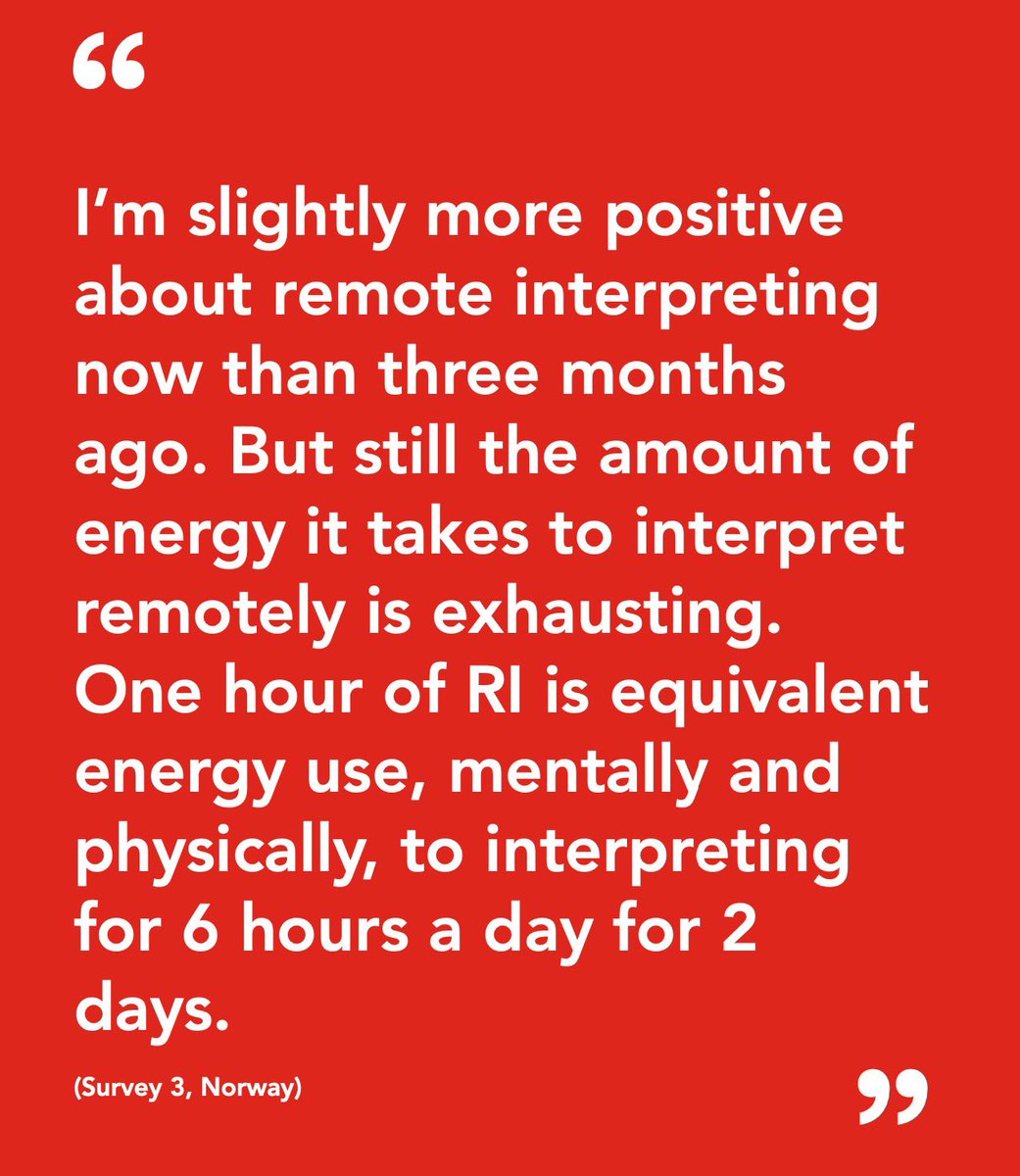Research report out with findings of the international study about remote sign language interpreting in times of COVID-19 co-authored with @oliverpouliot and @KaroGebruers @HU_Utrecht @HU_IGTD  Available Open Access
Available Open Access  https://bit.ly/39gu19J thread 1/11
https://bit.ly/39gu19J thread 1/11
 Available Open Access
Available Open Access  https://bit.ly/39gu19J thread 1/11
https://bit.ly/39gu19J thread 1/11
The study consists of 3 online ‘living’ surveys. A total of 2.634 interpreters from 63 different countries participated, often more than once. Largest contingent of respondents were from the U.S., UK, the Netherlands, Germany, Finland and Belgium. 2/11
The surveys focused on how the COVID-19 pandemic impacted interpreters’ working practices and how they experienced this. The study was carried out between April and July 2020, so findings are bound to this specific time frame. 3/11
The digital disruption caused by the pandemic has accelerated a sudden shift towards remote interpreting. This would probably have been inevitable in any case but happened at a much faster pace and on a much more global scale than any of us could have anticipated. 4/11
The findings indicate that the majority of respondents had never or only very occasionally worked remotely before the start of the crisis and had not received any training on how to do so. 5/11
Respondents commented on the benefits of remote interpreting, the most important being flexibility and the possibility to improve efficiency and availability of sign language interpreting services. 6/11
But remote interpreting was also seen as more stressful because of coping with technical issues, 2D, managing conversations, teamwork and having no real-life personal contact. Majority chose to work with self-selected pool of clients. 7/11
While some interpreters made it through the beginning of the crisis largely unscathed, for others the challenge was much more difficult. The data point to digital literacy being an important factor as well as training about and experience with working remotely. 8/11
The impact of crises is never gender-neutral, and COVID-19 is no exception. With the SLI profession being predominantly female, gender is an important factor to consider in interpretation of results and any follow-up research. 9/11
Before the crisis, remote work was something generally not advised for novice interpreters. The pandemic changed this guideline overnight. Important implications for SLI training and CPD programs re monitoring novice interpreters and preparing students for a hybrid career. 10/11

 Read on Twitter
Read on Twitter



